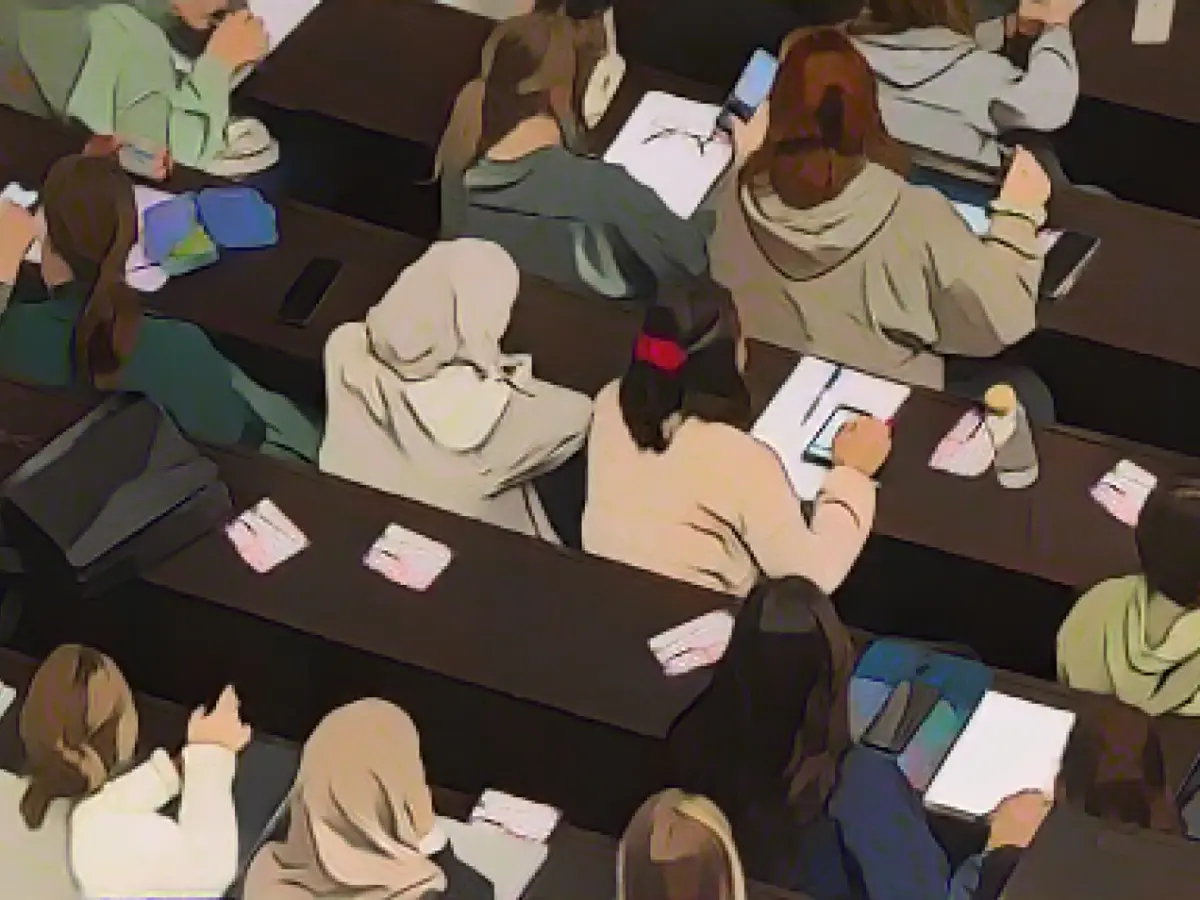Education - Analysis: State student funding hardly plays a role
According to a study, around five out of six students nationwide do not make use of student grants, state loans or scholarships. Instead, financial support from parents and part-time jobs are the most important sources of student financing, according to an analysis by the CHE Center for Higher Education Development.
"The fact that at least 84 percent of students in Germany are now unable or unwilling to make use of the state support available to finance their studies shows the urgent need for reform," emphasized study author Ulrich Müller in Gütersloh.
Unequal opportunities
For most of the almost three million students currently studying in Germany, the state offers are hardly relevant and there is an urgent need for action.
"If we leave the system of student financing in Germany as it is at the moment, success at university in future will depend more and more on whether you have rich parents or are enrolled on a flexible degree course that is compatible with a part-time job," criticized Müller. "Neither of these has much to do with equitable participation in higher education."
Possible reasons
Across Germany, the survey assumes that nine out of ten students are financially supported by their parents. More than two thirds work alongside their studies. Delays in the reform of the Bafög and high interest rates on the repayment of KfW student loans meant that students were increasingly left to their own devices to finance their studies. The data for 2022 also showed significant differences between the federal states, which were surveyed separately for the first time.
Müller demanded in a press release that a future-proof system would require a bundled federal study grant that would end the "confusing variety" of instruments, be adapted to the current reality of students' lives and create financial security.
The Bafög rate was raised from 427 to 452 euros per month - as a basic requirement - for the 2022/23 winter semester, which many had criticized as insufficient in light of inflation. According to the Federal Ministry of Education, Bafög funding is to be increased by 150 million euros in 2024.
In the coalition agreement, the coalition government had agreed on structural reforms to make the Bafög less dependent on parental income and to expand the group of recipients through higher allowances.
A student loan from the state development bank KfW is paid out for a maximum of 14 semesters and must be repaid within 25 years. According to the latest KfW figures, the interest burden for borrowers has increased significantly.
Read also:
- Year of climate records: extreme is the new normal
- Precautionary arrests show Islamist terror threat
- UN vote urges Israel to ceasefire
- SPD rules out budget resolution before the end of the year
- Ulrich Müller, the study author from the CHE Center for University Development in Gütersloh, highlighted the need for reform in student financing, as only 16% of students in Germany utilize state support.
- The analysis by the CHE Center for Higher Education Development revealed that state student grants, loans, and scholarships are seldom used by students, with financial assistance from parents and part-time jobs being more prevalent.
- Ulrich Müller, a prominent figure in Germany's higher education landscape, expressed concern over unequal opportunities in education due to the dominance of family wealth and flexible degrees in financing student education.
- The study, conducted across Germany, suggests that nine out of ten students rely on financial support from their parents, with over two-thirds working part-time.
- Delays in the reform of Bafög and high interest rates for KfW student loans have resulted in students relying on their own financial resources to fund their education, as reported by the CHE Center for University Development.
- In response to these issues, Müller advocated for a unified federal study grant, aiming to eliminate the “confusing variety” of financial aid instruments and ensure financial security for students.
- The coalition government agreed in their coalition agreement to structural reforms in Bafög, making it less dependent on family income and expanding the group of recipients through higher allowances.
Source: www.stern.de








